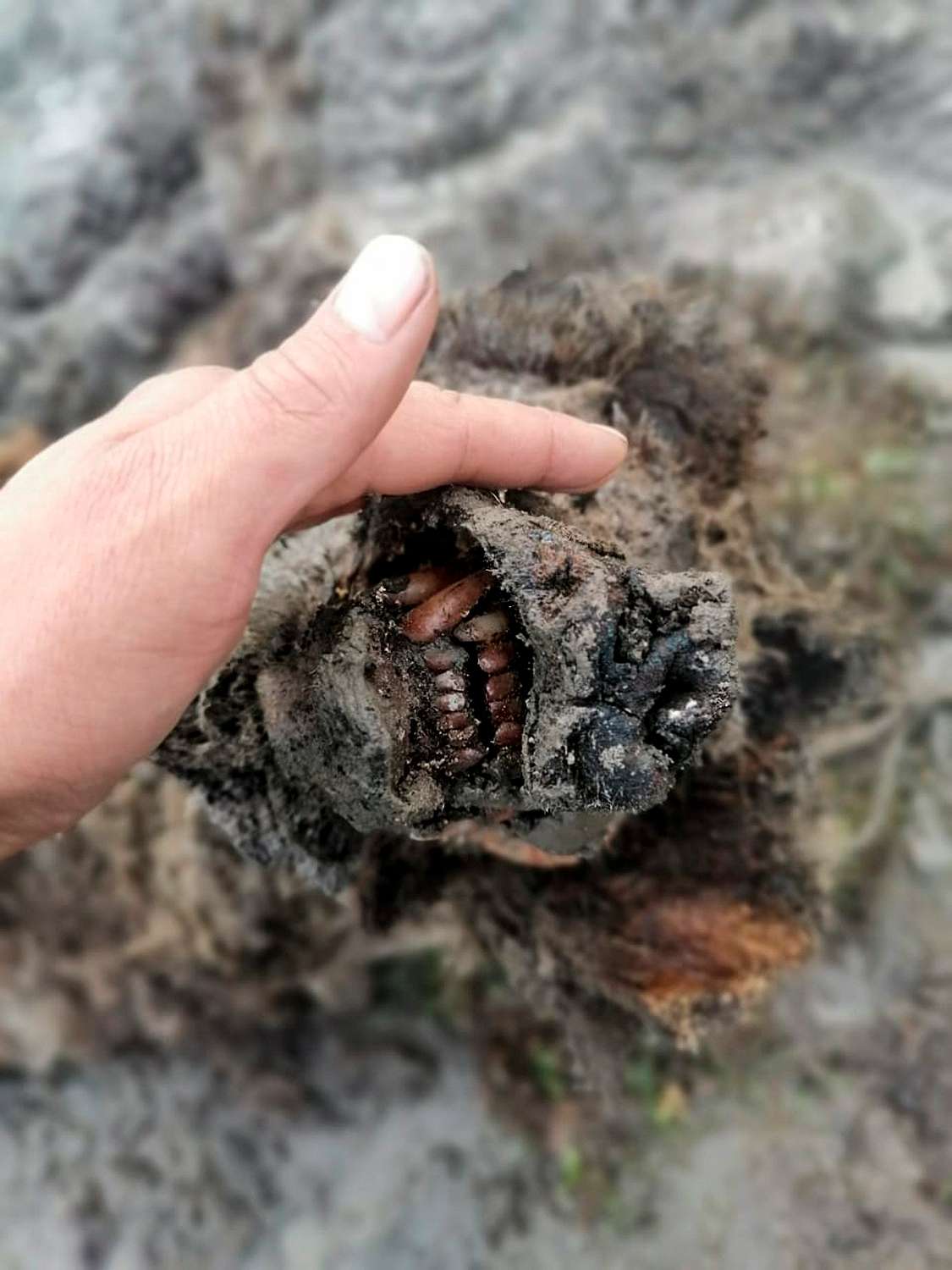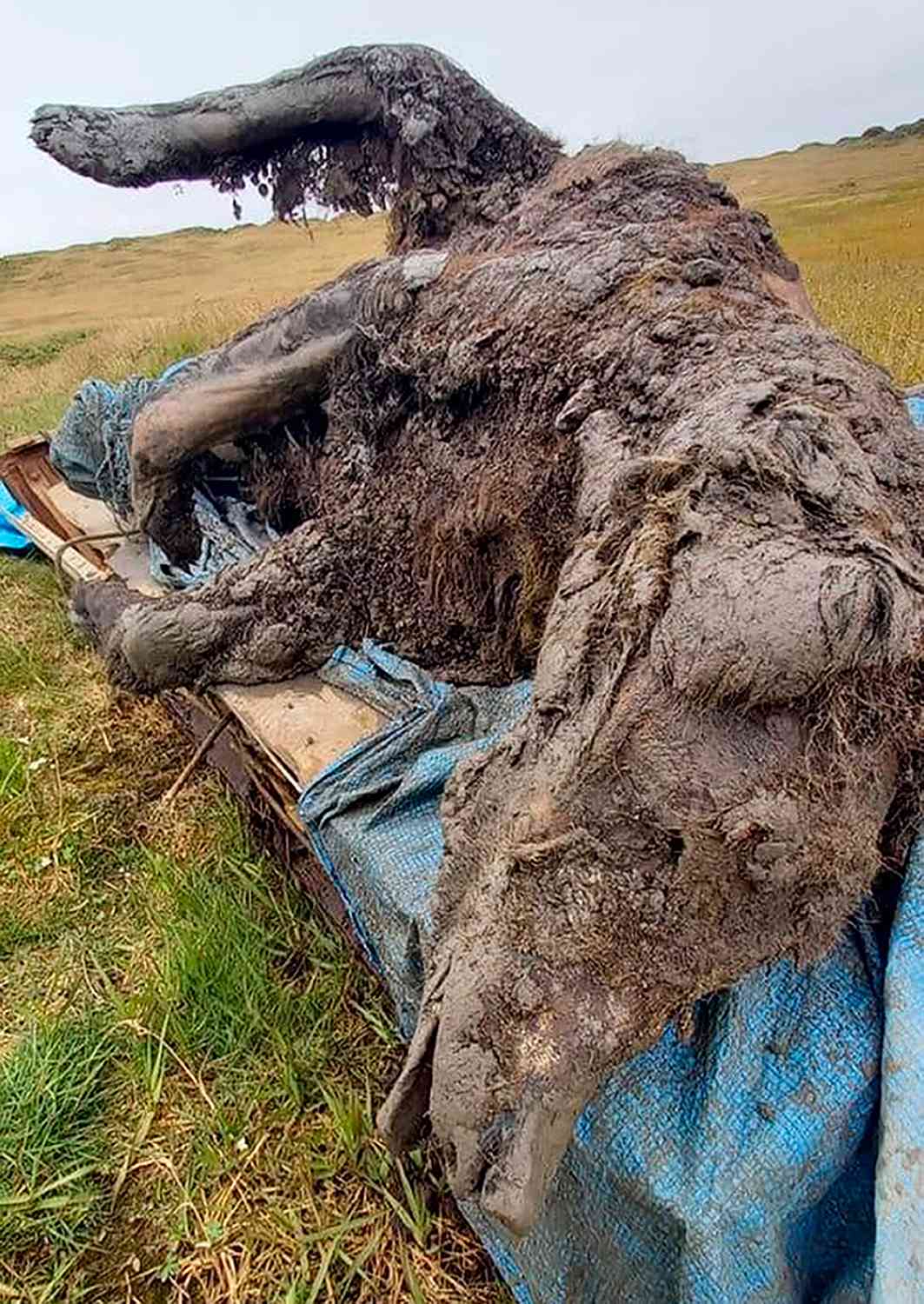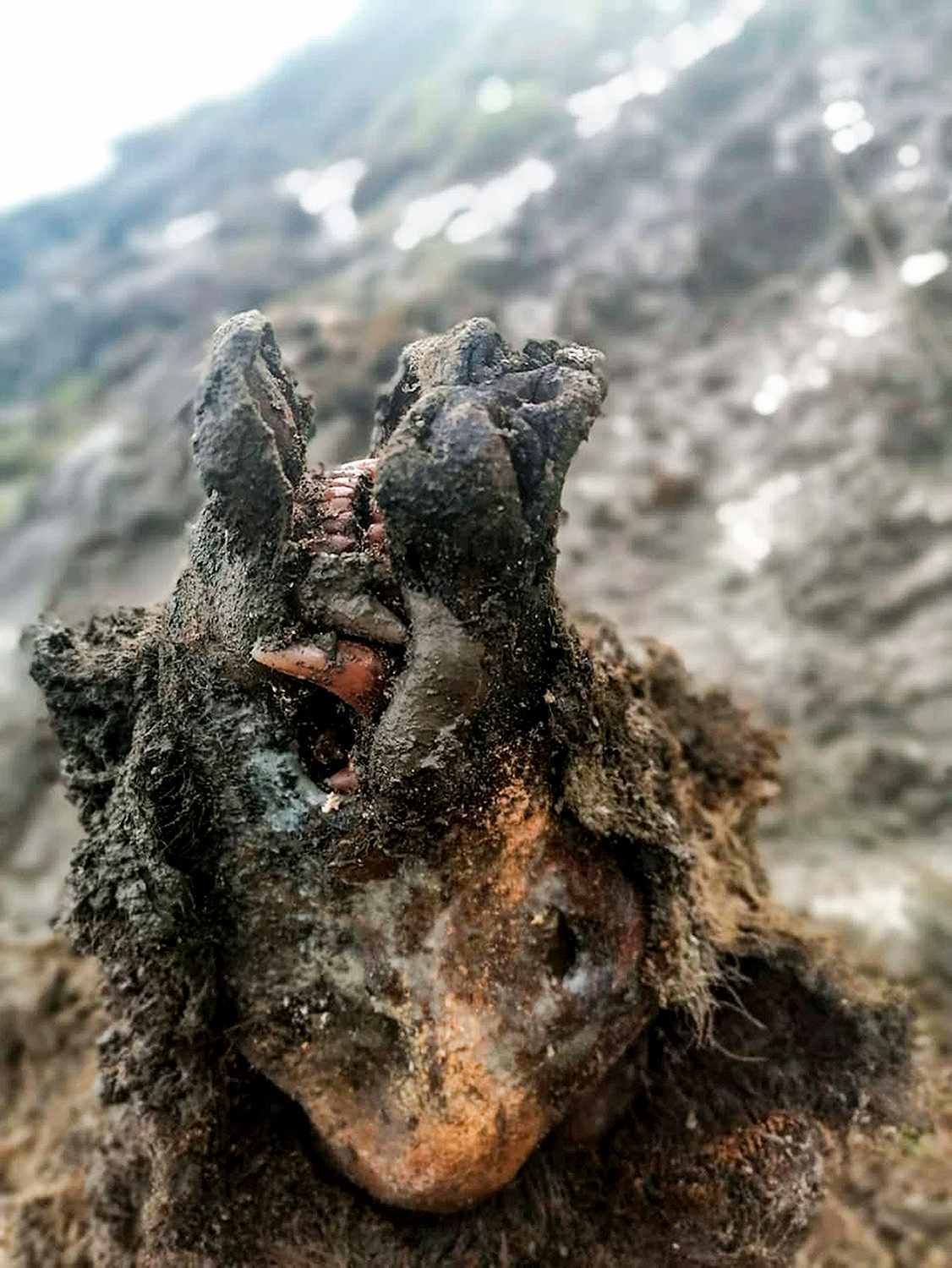
Reindeer Herders Discover 'Completely Preserved' Ice Age Cave Bear in Russia
09/15/2020Reindeer herders randomly made a rare scientific discovery.
On Monday, the North-Eastern Federal University (NEFU) in Yakutsk announced that scientists are now researching and examining the remains of a cave bear dating back to the Ice Age — but instead of simply skeletons and bones to work with, they now have remains that have soft tissue still preserved.
"Today this is the first and only find of its kind — a whole bear carcass with soft tissues," said scientist Lena Grigorieva in a press release. "It is completely preserved, with all internal organs in place including even its nose."
According to the university, the remains were uncovered by reindeer herders on the Lyakhovsky Islands in Russia. The rare remains will be studied at NEFU, which describes itself as being at "the forefront of research into extinct woolly mammoths and rhinos."
Never miss a story — sign up for PEOPLE's free daily newsletter to stay up-to-date on the best of what PEOPLE has to offer, from juicy celebrity news to compelling human interest stories
NEFU said the cave bear is a "prehistoric species or subspecies that lived in Eurasia in the Middle and Late Pleistocene period and became extinct about 15,000 years ago." Their early analysis estimates that the remains belong to a bear that's between 22,000 and 39,500 years old.
"It is necessary to carry out radiocarbon analysis to determine the precise age of the bear," Maxim Cheprasov, a senior researcher from the Mammoth Museum laboratory in Yakutsk, said in a press release. "The finder transferred the right to research to the scientists of NEFU."
The team at NEFU will soon begin a "comprehensive study" employing "all modern scientific research methods — molecular genetic, cellular, microbiological and others."
Source: Read Full Article




